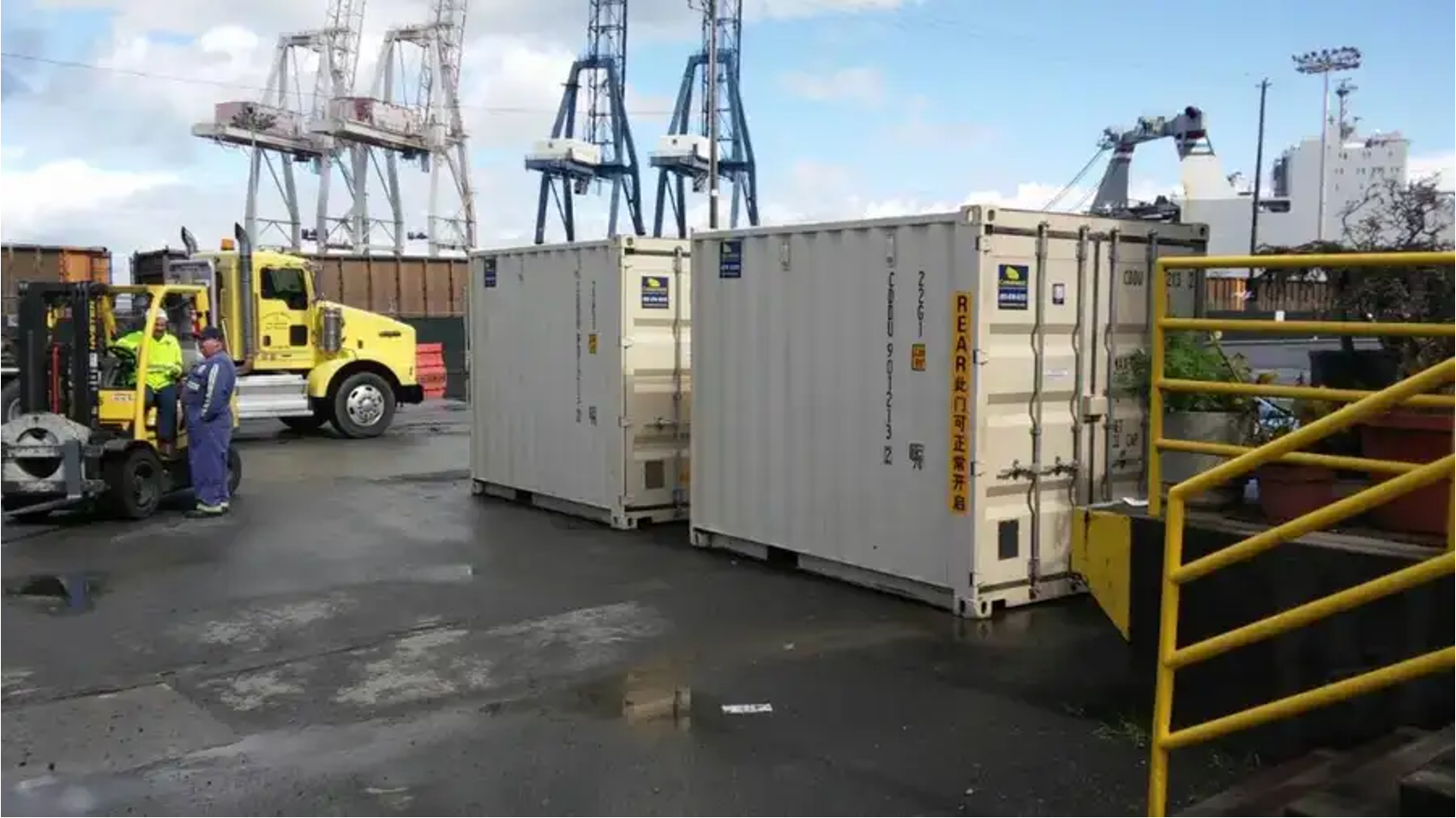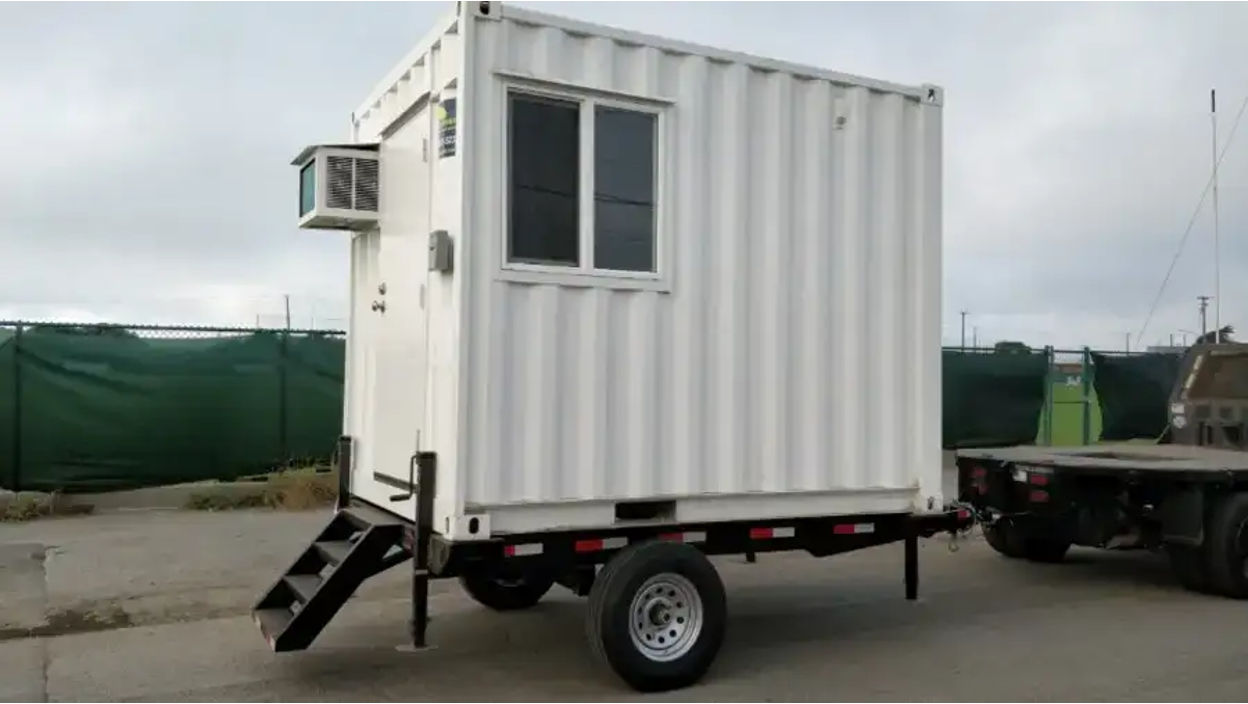South Dakota Shipping Container Zoning Laws, Permits & Building Code Requirements
Get a quoteSouth Dakota Shipping Container Zoning Law, Permit & Building Code Guide
Key Takeaways
- Obtaining a building permit is important and involves detailed documentation and compliance checks.
- Building codes help you keep your container home secure and up to standard.
- Contact local authorities early to understand specific requirements and streamline your project.
- We at Conexwest take care of all your shipping container needs: selling, renting, customization, and delivery.
Shipping Container Zoning Laws, Permits, & Building Code Requirements In South Dakota
Zoning Laws
Residential
- Shipping containers are usually limited to temporary use, like storage during renovations.
- Permanent container homes face stricter rules and need to match the neighborhood's design aesthetic.
- Some areas require containers to be painted or hidden to keep things looking neat.
Commercial
- Containers can be used for storage or as temporary offices.
- They must be safe, structurally sound, and not block public access or visibility.
Industrial
- Industrial zones are more relaxed.
- Containers are often used for storage, workshops, or as extra workspaces.
Permits
- Building Permits: Needed for homes or permanent structures. Modifications (like doors, windows, or utilities) require extra paperwork and inspections.
- Temporary Use Permits: Required for short-term use during construction or seasonal storage, with time limits and placement rules.
- Utility Permits: If you’re hooking up electricity or plumbing, you’ll need separate permits.
Building Codes
South Dakota generally follows the International Building Code (IBC) and International Residential Code (IRC).
- Structural Integrity: Containers must meet durability and safety standards, especially if they’re modified.
- Fire Safety: Proper fire safety measures and ventilation are required.
- Inspections: Expect inspections to ensure everything meets the code.
Aesthetic Considerations
- Color and Finish: Containers may need to be painted in neutral or complementary colors.
- Screening: You might need to use fencing, landscaping, or other methods to hide containers from public view.
- Design Compatibility: In residential areas, containers might need to blend in with traditional homes.
Read More: How Much Does a 20ft Shipping Container Weigh Empty & Loaded?
Examples from Various Municipalities
- Containers can’t go on public areas like streets, sidewalks, or boulevards.
- They must follow setback rules and can’t be the primary structure on a lot.
- Only electricity is allowed as a utility in non-residential zones.
- Zoning rules require meeting health and safety standards.
- Proof of compliance with building codes may be needed for container use.
Conexwest, a leader in shipping and storage solutions based in Northern California, offers new, used, and refurbished containers from 10ft to 45ft, with fast delivery within 3–7 days and container fabrication options like adding shelves and locks. We serve over 10,000 customers nationwide, including prestigious clients like the U.S. Navy and Google. As an ISO 9001 and AWS-certified company, we ensure top quality and competitive pricing. |
Tips For Complying With South Dakota’s Regulations

Containers used for industrial purposes face fewer restrictions.
1. Research Local Zoning Laws
- Know Your Zone: Figure out if your property is residential, commercial, or industrial. Each zone has its own rules for shipping containers.
- Check the Details: Some places limit container height, total size, or how close they can be to property lines. Double-check to avoid surprises.
2. Get the Right Permits
- Start Early: The earlier you start, the lesser will be your project delay.
- Gather Your Papers: You’ll likely need site plans, design drawings, and structural details. Make sure they’re accurate.
- Ask the Experts: Talk to your local planning office to find out exactly what permits you need—zoning, building, or temporary.
3. Focus on Safety and Upkeep
- Add Safety Features: Ventilation, fire protection, and reinforcements are key—especially if the container will be used as a living or working space.
- Inspect Regularly: Check for rust, leaks, and general wear to keep everything up to code.
4. Stay Updated on Rule Changes
- Watch for Updates: Zoning and building codes can shift, so monitor changes.
- Join Community Meetings: Get involved with local planning to stay ahead of potential rule adjustments.
Read More: Are Shipping Containers Airtight & Windproof?
Choose Conexwest For Your Shipping Container Needs

We have ready-made containers that you can use as an office.
We supply top-quality shipping and storage containers all over the US. Whether you need a small 10ft unit or a spacious 45ft one, we’ve got something for every project—be it storage, construction, or even creative spaces.
Why Choose Us?
- Extensive Inventory: Need new, used, or refurbished containers? We’ve got options that fit any budget and purpose.
- Customization: Want shelves, lock upgrades, or other add-ons? We’ll customize your container to suit your needs.
- Fast Delivery: Get your container delivered in just 3-7 days—so your project stays on track.
- Quality: Our new containers come with a 10-year warranty. Used containers? You still get 5 years of coverage.
- Expert Help: From assisting with permits to picking the right container, our team is here to make things easy for you.
Frequently Asked Questions (FAQs)
- How long does it take to get a permit?
It depends on your location and project complexity. Usually, it takes a few weeks to a couple of months. Want to speed things up? Have your paperwork ready and follow local guidelines from the start.
- What affects the approval of my container permit?
Several things can play a role:
- How you plan to use the container (storage, living, etc.)
- Its size
- Where you’re placing it
- If it affects nearby properties or the community.
- Can I use a shipping container for my business?
Yes. Containers can become retail spaces, offices, or workshops. Just keep in mind that modifications might be needed to meet building codes.
- What if my permit is denied?
No worries! You can either appeal the decision or tweak your application to match local requirements.
- What kinds of containers do you provide?
We’ve got it all—standard, insulated, refrigerated, freezer, and office containers—in sizes from 10ft to 45ft. Click here to see our full list of containers.
